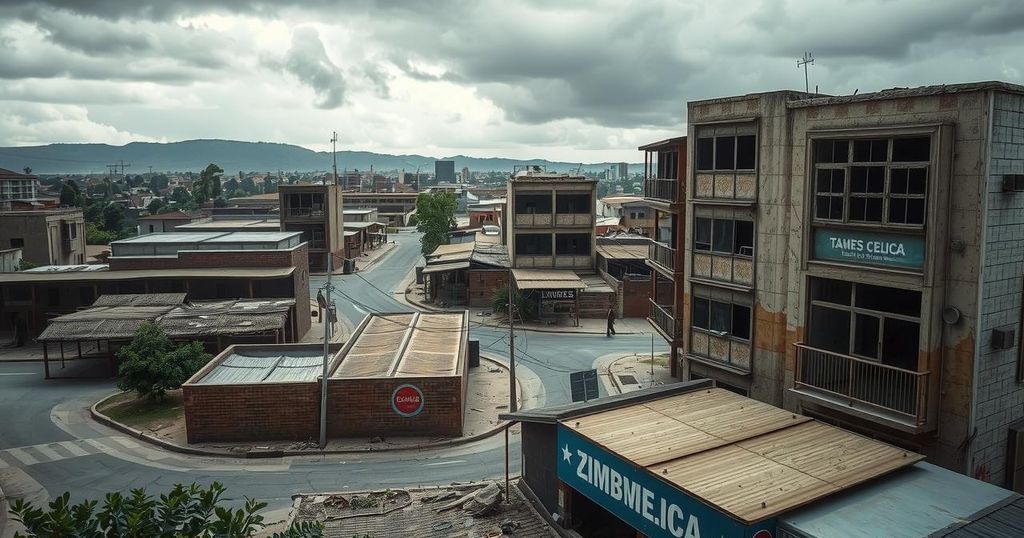Political unrest in Zimbabwe is escalating due to calls for President Mnangagwa to step down, raising concerns for South Africa. Many Zimbabweans are considering migrating to SA despite increased deportations, driven by unemployment and poor living conditions. The situation highlights the interconnectedness of both nations, with economic and political ramifications potentially affecting SA’s public services and infrastructure.
Political instability in Zimbabwe is on the rise due to internal dissent within the ruling Zanu-PF over President Emmerson Mnangagwa’s potential third term. While unemployment and poverty are critical issues in Zimbabwe, many citizens see South Africa (SA) as a viable alternative for better opportunities, despite rising deportations reported by the Department of Home Affairs.
Individuals like Sothini Ncube, a vendor with an honors degree, express their struggles in Zimbabwe, highlighting the lack of basic amenities and job opportunities. “Why should I stay home when it’s clear 2025 and beyond will be a waste for me?” he reflects on his choice to return to SA in search of menial jobs despite the challenges there.
Ncube and others point to inadequate resources, like painkillers in hospitals, indicating dire living conditions, which drives them to seek refuge in SA. Following a nationwide operation against illegal immigrants announced by SA, rising political tensions may compel more Zimbabweans to migrate.
Economist Stevenson Dlamini warns that instability in Zimbabwe could impact SA’s public services, as it has historically dealt with unregulated economic and political refugees. He emphasizes that a politically unstable Zimbabwe affects business operations, given the trade relationship between the two countries.
Internally, Zanu-PF is grappling with factional disputes; during the Bulawayo conference, a faction proposed extending Mnangagwa’s term by two years or modifying the constitution to allow for a third term, potentially extending his tenure until 2034. Despite his assurances of adhering to his constitutional term, Mnangagwa tolerates the discussions around a constitutional amendment.
Opposition voices like Blessed Geza, initially a member of Zanu-PF’s central committee, have been silenced, facing repercussions for resisting Mnangagwa’s extension efforts. Geza has called for protests to oust Mnangagwa, advocating for his deputy, Constantino Chiwenga, as a successor.
Zanu-PF spokesperson Christopher Mutsvangwa has accused Chiwenga of presidential ambitions while also expressing doubts about his suitability for leadership. As protests loom, Mnangagwa has acted swiftly to alter the composition of the security apparatus to maintain control, distancing them from political pressures.
Significant personnel changes include the retirement of Gen. Godwin Matanga and director-general Isaac Moyo from their leadership positions, alongside the military’s reorganization, indicating a strategic move to stabilize the regime ahead of anticipated public unrest against Mnangagwa’s rule. The new leadership marks a departure from the past, especially regarding the military’s role following the 2017 coup that initiated Mnangagwa’s administration.
The political turmoil in Zimbabwe poses risks not just internally but also has implications for neighboring South Africa, which may experience an influx of migrants seeking better living conditions. As economic hardships deepen in Zimbabwe, the calls for political change are intensifying. The response of both governments will be critical in addressing these challenges, especially for SA, which may have to bolster its public services to accommodate a potential rise in refugees.
Original Source: www.newzimbabwe.com






